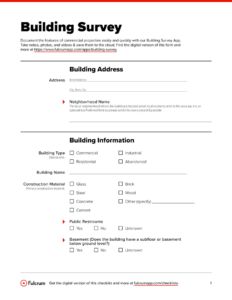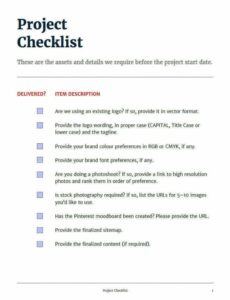Crafting a privacy policy for your marketing agency can be daunting, especially with the ever-changing regulatory landscape and the need to reassure clients that their data is safeguarded. Hence, using a customizable template can simplify this process, allowing you to focus on the core aspects of your agency’s operations. A well-structured privacy policy template provides a framework to address data collection, usage, storage, and disclosure practices, ensuring compliance and transparency. Here are some key elements to include and some frequently asked questions regarding marketing agency privacy policy templates.
A marketing agency privacy policy template serves as a foundation for building a comprehensive privacy policy tailored to your agency’s specific services and data handling practices. It streamlines the task of creating a legally compliant document while demonstrating your commitment to data protection. With an effective privacy policy in place, you can foster trust among your clients, partners, and stakeholders, demonstrating your agency’s accountability and upholding your ethical responsibilities.
Essential Elements of a Marketing Agency Privacy Policy Template
Personal Information Collection and Usage
Clearly define the types of personal information your agency collects, including name, contact details, browsing behavior, IP addresses, and any other data relevant to the services provided. Specify the purposes for which this information is collected, such as providing services, improving user experience, or communicating with clients. Ensure that data collection is limited to what is necessary and proportionate.
Emphasize your agency’s commitment to safeguarding personal information through appropriate security measures. Outline the administrative, technical, and physical safeguards implemented to protect data from unauthorized access, misuse, disclosure, alteration, or destruction. Regularly review and update these security measures to keep pace with evolving threats.
Data Retention and Disposal
Specify the duration for which personal information will be retained. Establish clear criteria for determining retention periods, considering factors such as legal obligations, business requirements, and the sensitivity of the data. Implement secure disposal procedures to ensure that personal information is permanently erased or anonymized when it is no longer needed, minimizing the risk of data breaches or unauthorized access.
Grant individuals the right to access, rectify, and erase their personal information, as stipulated in applicable data protection regulations. Provide clear instructions on how individuals can exercise these rights, such as submitting a request through a dedicated email address or online form. Establish a process for promptly responding to and addressing requests within the specified timeframe.
Transparency and Accountability
Cookies and Tracking Technologies
Disclose the use of cookies, web beacons, and other tracking technologies on your agency’s website and online platforms. Explain the purpose of these technologies, such as personalizing content, analyzing website traffic, and improving user experience. Provide users with the option to opt out of tracking or manage their cookie preferences. Clearly state that your agency will not collect sensitive personal information through these technologies without explicit consent.
Demonstrate your agency’s commitment to transparency by providing easily accessible information about your privacy practices. Publish your privacy policy prominently on your website, ensuring that it is easily discoverable and understandable. Regularly review and update your privacy policy to reflect changes in your data handling practices or any regulatory updates. Encourage open communication with clients and stakeholders regarding your agency’s privacy commitments.
Conclusion
A well-crafted marketing agency privacy policy template provides a solid foundation for building a comprehensive and compliant privacy policy. By adhering to best practices and incorporating essential elements such as data collection, usage, security, retention, and transparency, you can instill confidence among your clients and stakeholders. Regularly reviewing and updating your privacy policy ensures that it remains aligned with evolving data protection regulations and your agency’s changing data handling practices.
A transparent and accountable approach to data privacy not only safeguards your agency’s reputation but also fosters trust and builds lasting relationships with clients. By prioritizing data protection, you demonstrate your commitment to ethical and responsible business practices, setting your agency apart as a leader in the marketing industry.
FAQ
What should I look for in a marketing agency privacy policy template?
Choose a template that is comprehensive, covering essential elements such as data collection, usage, security, retention, and transparency. Ensure that the template is customizable to align with your agency’s specific services and data handling practices. Look for templates that are regularly updated to reflect changes in data protection regulations and best practices.
How can I ensure compliance with data protection regulations using a privacy policy template?
While a template provides a strong foundation, it is essential to review and customize it carefully to ensure compliance with the relevant data protection regulations in your jurisdiction. Consider seeking legal advice to ensure that your privacy policy accurately reflects your agency’s data handling practices and meets all legal requirements.
How often should I review and update my privacy policy?
Regularly review your privacy policy to ensure that it remains aligned with your agency’s changing data handling practices and any updates to data protection regulations. It is advisable to conduct a comprehensive review at least once a year or whenever there are significant changes to your agency’s operations or the regulatory landscape.


